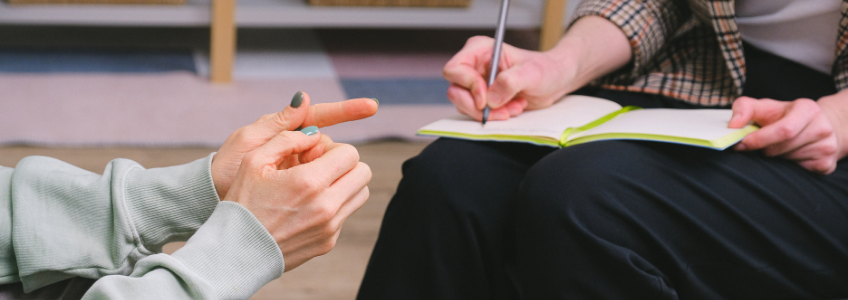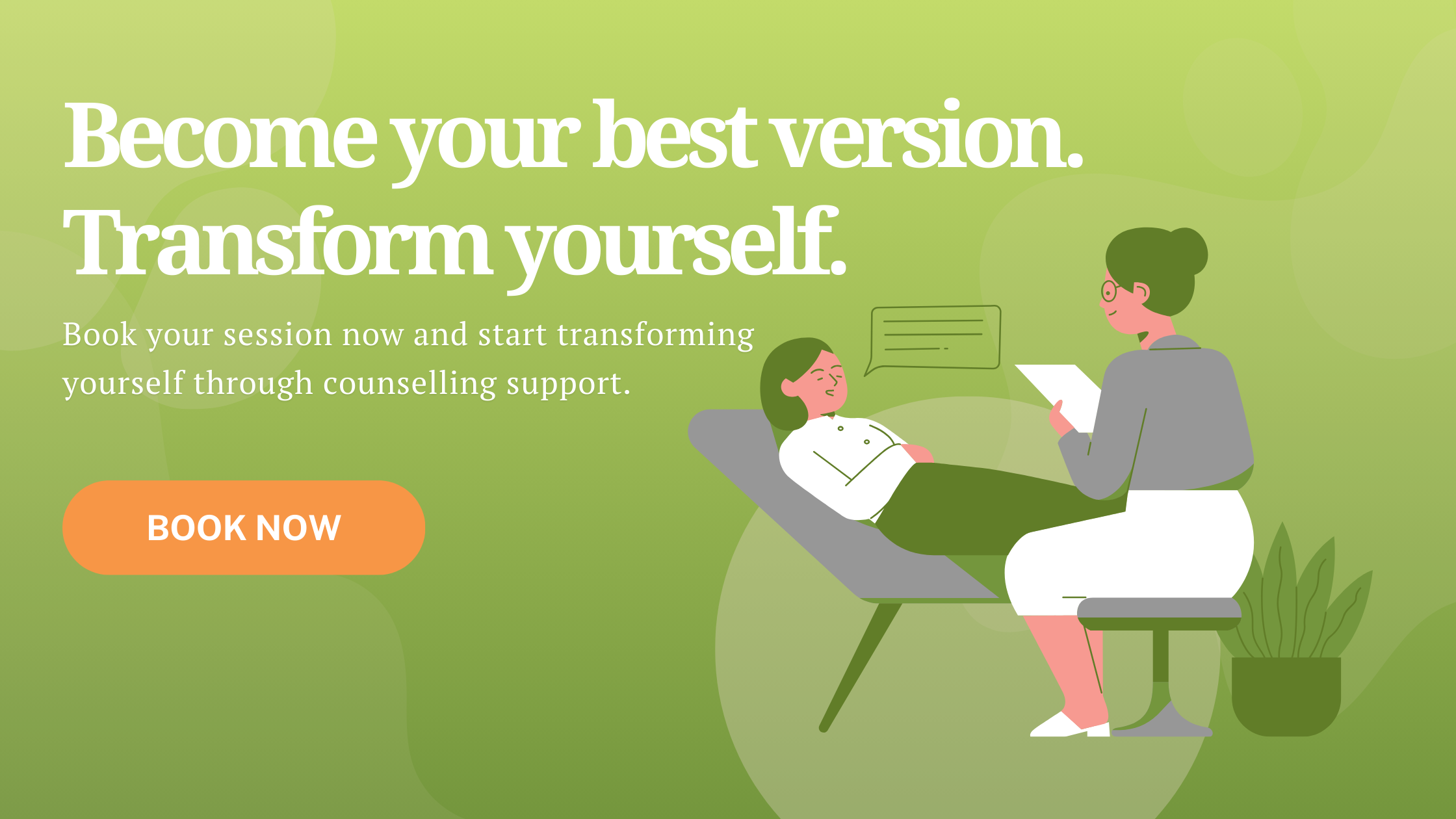
Starting therapy can be difficult, especially if you don’t know what to expect.
○ What does a therapy session look like?
○ What am I supposed to talk about?
○ Will a therapist ask a lot of personal questions?
○ Will I have to talk about my childhood?
To make things a little easier and more familiar, this article is devoted to shedding light on common questions people ask about therapy. When we know what to expect, it becomes a little less challenging.
Therapy is an amazing journey in which you can:
- get to know yourself
- share different parts of your life you may not feel comfortable sharing with anyone else
- explore and understand how and why you do the things you do and feel the things you feel
- learn to navigate your relationships better
- work out a particular problem, like resolving a conflict, getting rid of some habits, mapping out a career change, etc.
- learn and practice new skills
- deal with emotional issues, such as depression, anxiety, anger, mood swings, etc. that may be negatively impacting your life
- improve your ability to deal with stress or cope with change
…the list goes on and on!
Therapy is a safe space for you to explore and discover, understand and accept, learn and practice. There is nothing to fear, and many benefits to gain. But therapy also takes courage, effort, and financial investment, so it’s natural to be wondering if it’s worth it.
So, first things first, before making a call, you may be asking yourself – do I really need therapy?
Signs you may need therapy





If similar questions crossed your mind before deciding to start therapy, you are not alone.
To save you some time, here is a short answer: There are a lot of reasons to start therapy, and all of them are equally valid.
There are really no hard rules or bad reasons for going to therapy. Whether you are facing some challenges you don’t know how to overcome or just need somebody to talk to – neither of those reasons is wrong.
Yes, it is true that people often seek therapy when they’re in a crisis or during stressful life events. But it is also true that many people seek therapy wanting to know themselves better and improve certain aspects of their lives, without being in a middle of a crisis. It’s okay to start therapy just because you feel like you would use a little extra help, even if you’re not sure why. That being said, there are some signs that, right now, it might be an especially good time to seek out therapy.















This is by no means an exhaustive list, but it can give you a general idea about what kinds of reasons people have for going to therapy. Essentially, if you want to start therapy or think you could find value in this process, that is reason enough. Just remember – there is no wrong time to ask for help.
How to prepare for your first psychotherapy session?
Okay, so you’ve made a decision and scheduled your first counseling appointment. Now what?
It may be a good idea to define why you are starting therapy, and why now. Additionally, think about what you’d like to achieve with therapy, what is the desired state. This can help you and your therapist better define your goals and give you direction in your session. Still, if you don’t have answers to these questions, that’s okay. You and your therapist can discuss the problem together and explore what would be the best path to take.
It’s completely okay to feel nervous before your first psychotherapy appointment; many people experience this. Part of this uneasiness comes from novelty, and it’s a completely normal response to facing something new. Another part of it may be coming from expecting to talk about sensitive stuff, things you usually don’t discuss in your everyday life, and you may be worried that this is going to bring some strong emotions to the surface. It’s important to know that, although this is a possibility, you don’t have to discuss anything you don’t want or don’t feel ready to talk about. Additionally, a good therapist will know how to create a safe space for you to, eventually, want to open up and share your thoughts, feelings, and experiences.
What to expect on your first therapy appointment?
If you are going to see your therapist in person, make sure to come a few minutes early. If you are having an online counseling appointment, make sure you have access to a private space without interruptions. Before, or during your first session, you will fill out some paperwork that usually includes your personal information, medical history, insurance information, etc. You will also be asked to sign an informed consent.
The initial first few minutes of your session might look different with different therapists, but you will most likely spend them getting to know each other. Therapists are aware that most people can be nervous about their first therapy session, so many of them will start with some small talk and easy topics to get you to relax and be more comfortable. Then comes the main part. Your therapist will need to know why you are seeking therapy, some of your history, and your therapy goals.

Some of the questions your therapist may ask during your first session:
- Do you have previous experience with psychotherapy?
- Does someone in your family have any mental health issues?
- Are you using any medication currently?
- What brought you to therapy?
- How long have you been experiencing these problems?
- What do you hope to get from therapy?
When answering your therapist’s questions, it’s important to be open and honest. Your therapist is not there to judge you but to support and help you. However, as previously mentioned, you are not obliged to disclose anything that makes you uncomfortable. Although everything you say in therapy is confidential (unless it poses a threat to you or others), it’s understandable that you don’t feel comfortable sharing your deepest vulnerabilities with a stranger. As your relationship with your therapist develops over time, a sense of trust will grow. But if your therapist is pushing you to answer or discuss something that you communicated you don’t feel comfortable with, it might be a red flag.
Finally, be free to ask questions as well. You may want to know, for example, about billing, insurance, their expertise or experience, or about your particular issue. This process is about YOUR personal growth, and you want to walk away feeling that you’re moving in a positive direction.
How to get the most out of therapy?
Finishing your first counseling session is a huge step. Good job! It is also the first step in many. It is normal if you feel especially tired or low following your first counseling session. You’ve started important work – unpacking and understanding your thoughts and feelings. This can be demanding. Give yourself some space and time to process. It is also common to feel more grounded, lighter, and even ecstatic after your first (or following) therapy session(s). Having someone to hear your struggles without judgment and help you understand them can be powerful.
Therapy is a process that requires commitment, patience, and conscious effort. Don’t expect your problems to go away after one or two sessions – it is extremely rare. How many sessions you will need depends on many factors, from the nature of your problem to the coping skills you already have, your personality traits, your support system, your relationship with your therapist, etc. Still, there are some important things you can do to speed up the process and get the most out of your counseling sessions. Here are 5 tips on how you can maximize your therapy journey.

1. Find the right fit
Research shows that the quality of the therapeutic relationship is the #1 factor that influences how successful therapy will be. Thus, it is crucial to find a therapist that is the right fit for you. This means that you feel safe, understood, and validated with them, that their approach feels comfortable to you personally, and that you leave your sessions with a sense that you are making progress.
2. Work between sessions
You can gain great insight in therapy, learn useful coping skills, and know what is healthy for you, but if you don’t actually put it into practice in real life, there is little chance positive change will occur. Therapy is not a place where you will go to be “fixed” or told what to do exactly. Instead, your therapist will guide you and provide the tools, but you are the one who needs to put in hard work for it to be effective.
3. Be completely honest
It can be difficult to share your deepest secrets and emotions with someone. Even facing some of these inner contents yourself, alone, can be challenging. Still, the more honest you are with your therapist, the better. Your therapist works with what you give to them – omitting certain details or refraining from disclosing certain feelings or experiences can slow down your therapeutic growth.
4. Don’t be afraid to tell your therapist what is not working well
Your therapist works in your best interest, and they are trained to listen well and without judgment. Sharing your feedback about the process or doubts about the direction you are headed in therapy is precious for any good therapist, and it can also speed up your progress.
5. Be patient
Sometimes positive change comes quickly, and sometimes, it is slow and gradual. Give it time and patience, and notice small wins along the way. Still, if you feel like you are not getting much out of your sessions, it is completely okay to voice your concerns to your therapist.
Some other basics about psychotherapy





A therapy session is a time designated for you only, and you can use it however you want.
It is a space for you to be yourself, share your concerns, and be totally honest without worrying about hurting anyone’s feelings or embarrassing yourself. A good therapist will help you work through and feel safe, heard, and understood.
Therapy is a smart investment – in both the present and the future. Does everybody need it? No. But it’s a valuable tool that can help anyone achieve their goals, solve problems, and improve their life.
Do you have any questions about psychotherapy? Write us in the comment section below!
Interested in learning more about coaching or therapy? Contact us today.
Sources:
Barak, A., Hen, L., Boniel-Nissim, M., & Shapira, N. A. (2008). A comprehensive review and a meta-analysis of the effectiveness of internet-based psychotherapeutic interventions. Journal of Technology in Human services, 26(2-4), 109-160. Online access HERE
Munder, T., Flückiger, C., Leichsenring, F., Abbass, A. A., Hilsenroth, M. J., Luyten, P., … & Wampold, B. E. (2019). Is psychotherapy effective? A re-analysis of treatments for depression. Epidemiology and Psychiatric Sciences, 28(3), 268-274. Online access HERE
Vandergiendt, C. (2020). Why Therapy? The Most Common Reasons to See a Therapist. Healthline. Retrieved online on May 28th HERE




